Status
Corporations use political contributions to tip the playing field in their favor. That's not fair. It’s not good for the economy and it’s not good for democracy. Mainers deserve the confidence that their representatives listen to them, not corporate special interests.
Our bill, LD 1417, was signed into law on June 17, 2021. It would limit corporate contributions to candidates and leadership PACs. More than a third of money raised by legislator-controlled PACs comes from corporate sources. Federal law and 22 other states prohibit corporate contributions to candidates. Maine was lagging behind until LD 1417 was put into place.
However, a new bill, LD 726, was introduced in the 131st legislative session, designed to limit some of this new reform. Over time the bill turned into a full blown repeal. Legislators and lobbyists who wanted the appeal argued that money flows between PACs regardless of a ban. “The money finds a way.” We rejected this thinking and asked legislators to consider strengthening the bill, expanding the ban to include caucus PACs and party committees, as well as candidates and leadership PACs.
Even after more than 670 letters were sent by Maine voters asking their legislators to keep the corporate contribution ban, the bill was passed in both chambers and signed by Governor Mills. It went into immediate effect to repeal the corporate contribution ban and requires the Ethics Commission to develop similar legislation and submit a report by February 2024.
We would have preferred to strengthen the ban that we already had in place, and not a full repeal, but this is a start. We have a path moving forward. We plan to watchdog the process in 2024 and ensure that Maine doesn't move backwards on campaign finance reform. We will ensure that Maine has a solid corporate contribution ban.
The data
Below, we have represented our data in various ways that highlight what candidates, Caucus PACs, Leadership PACs, and Party Committees receive from all sources versus commercial and corporate sources.
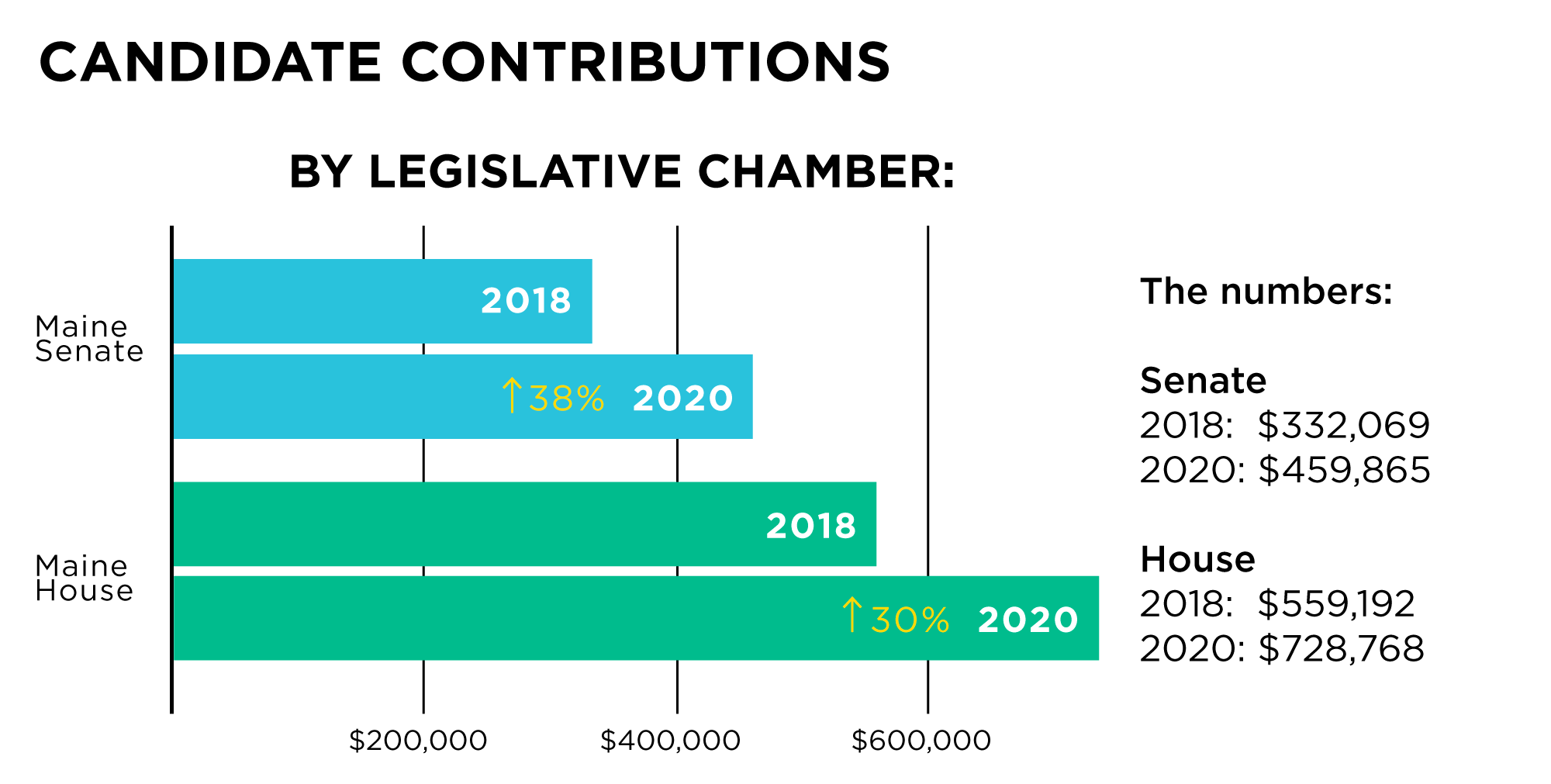
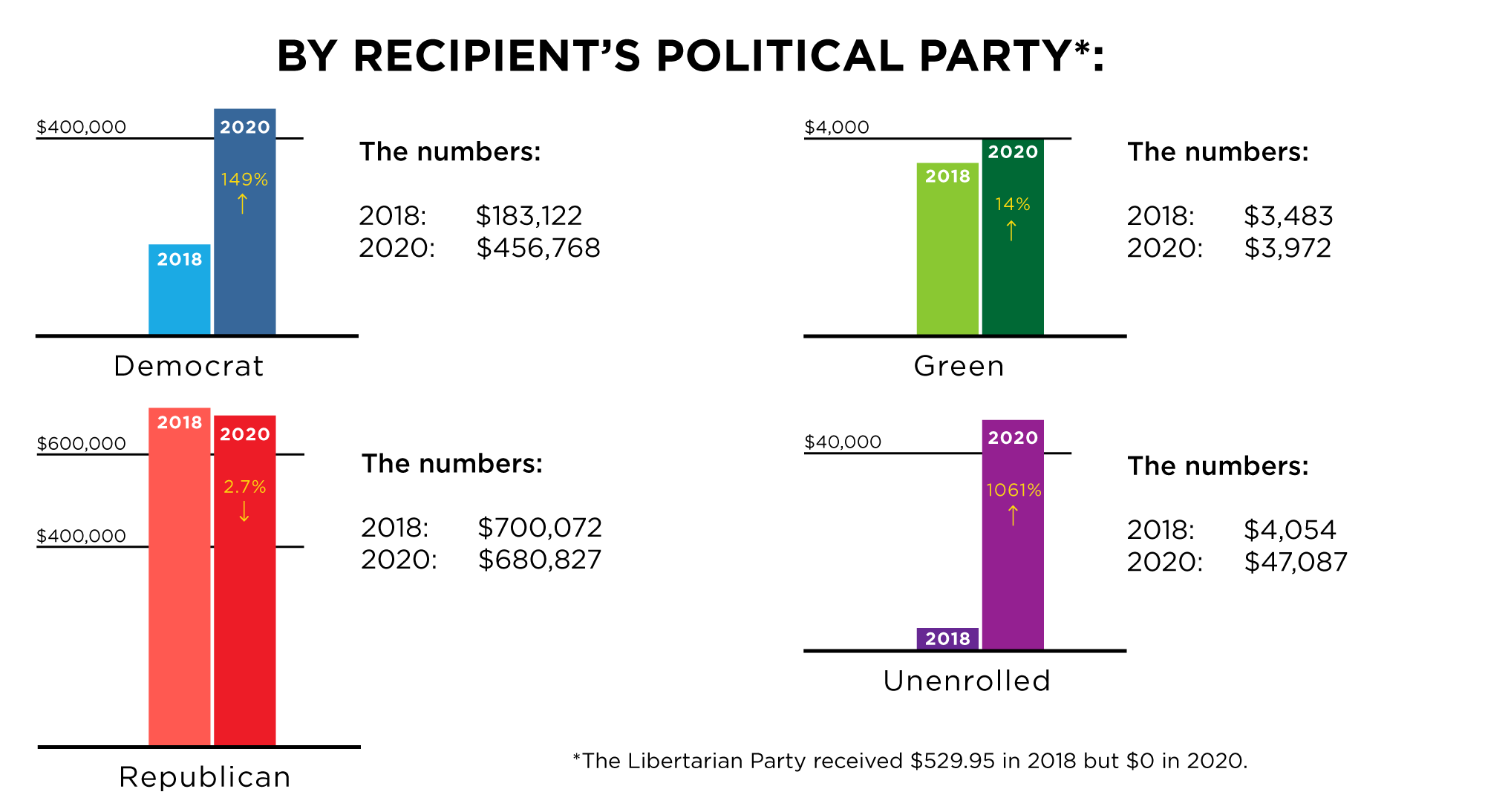
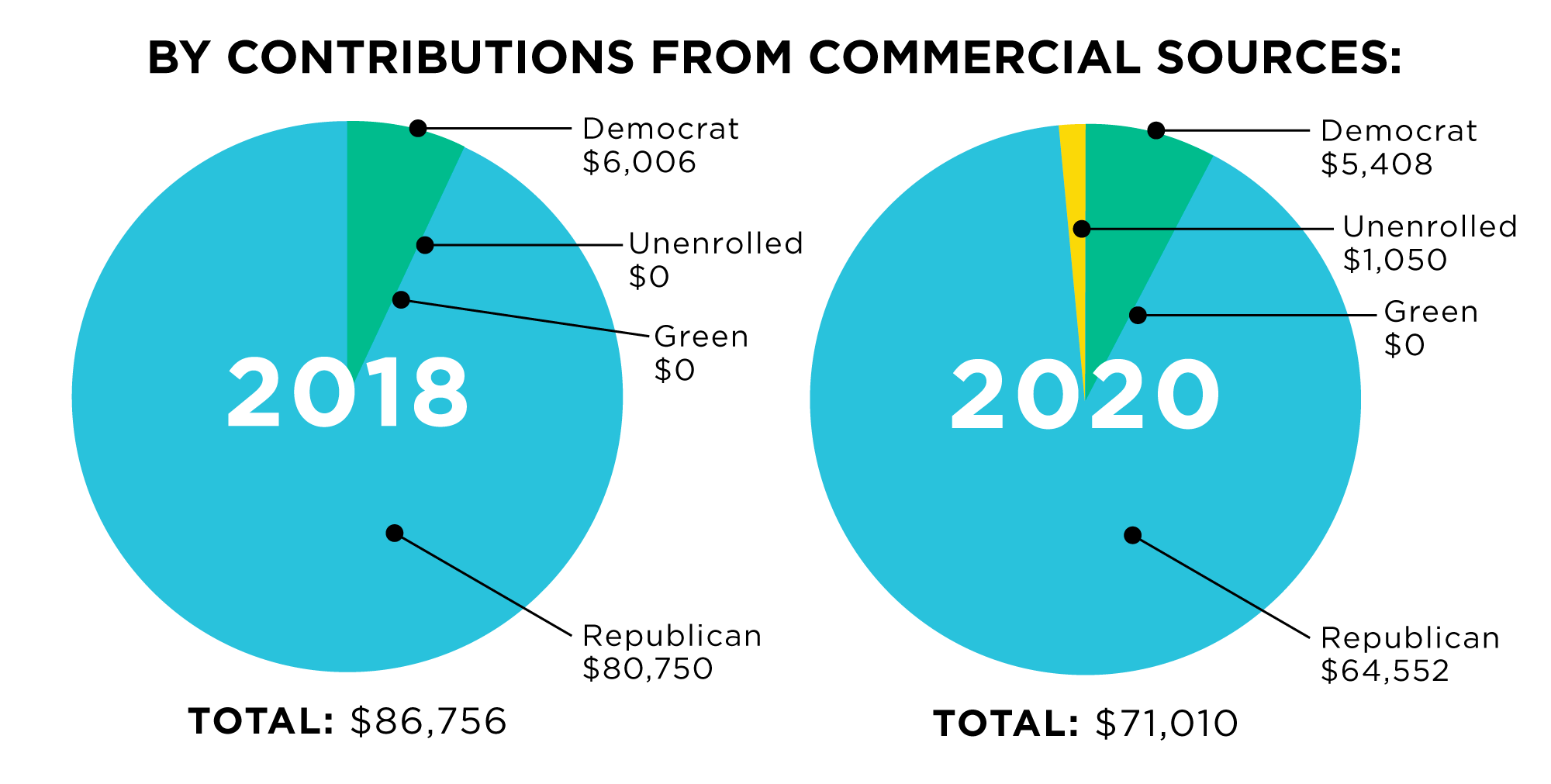
This data shows what recipients have received based on political party from commerical sources.
*Note: It is up to the political parties to self-report these numbers.
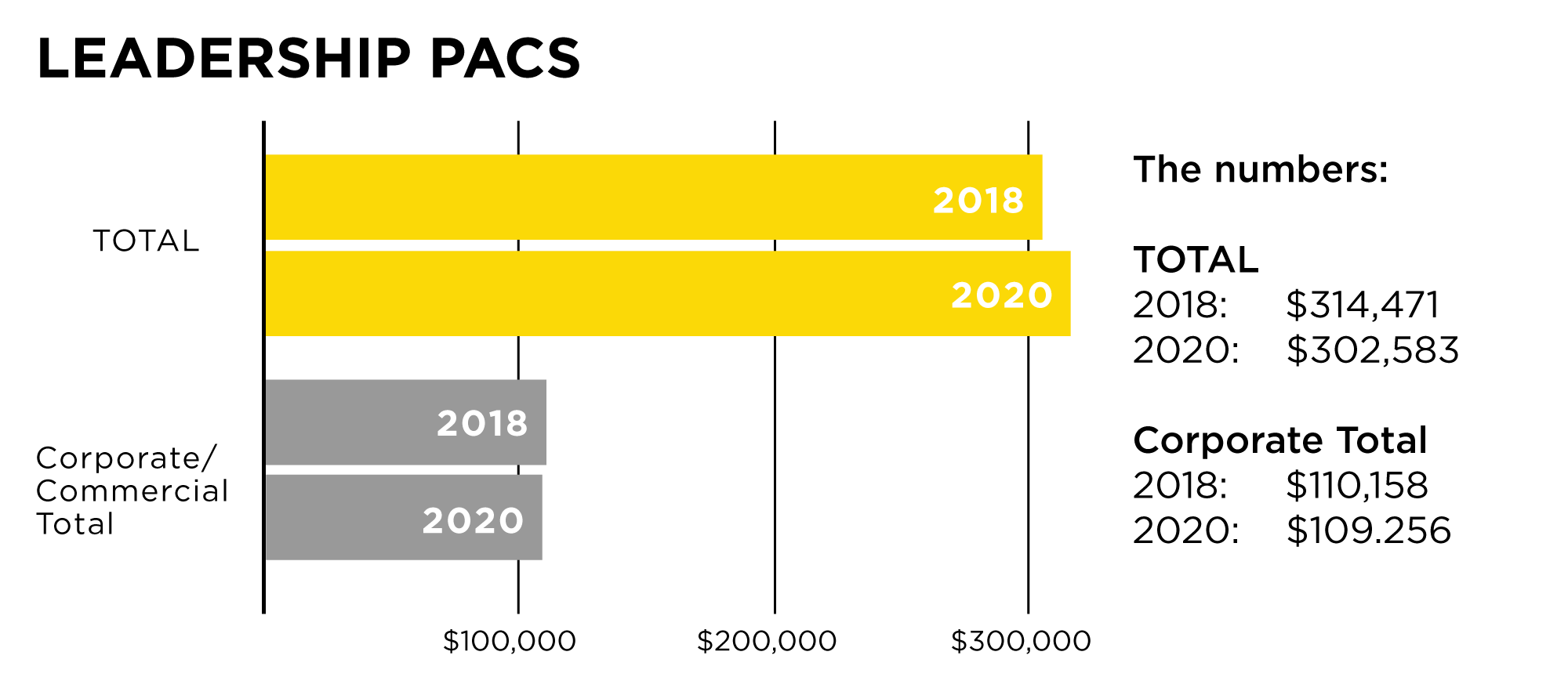
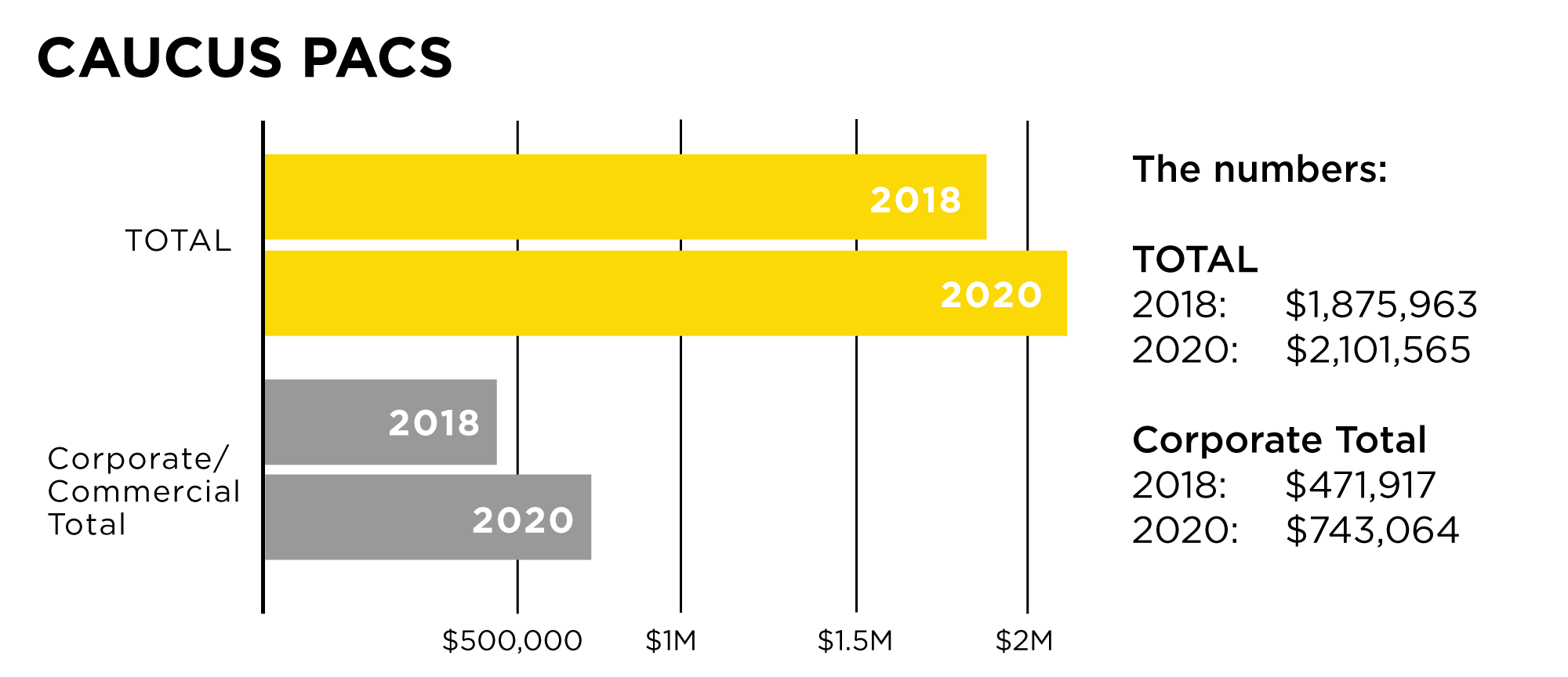
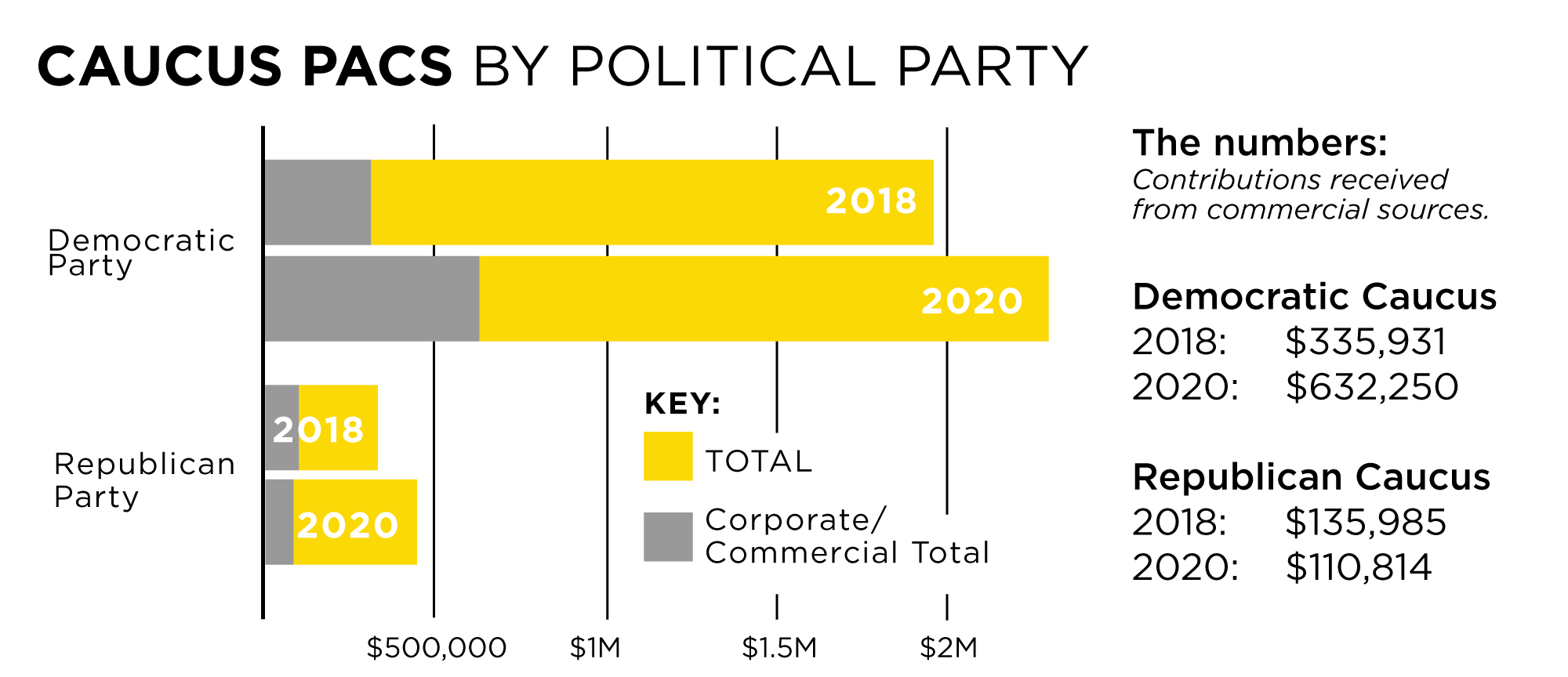
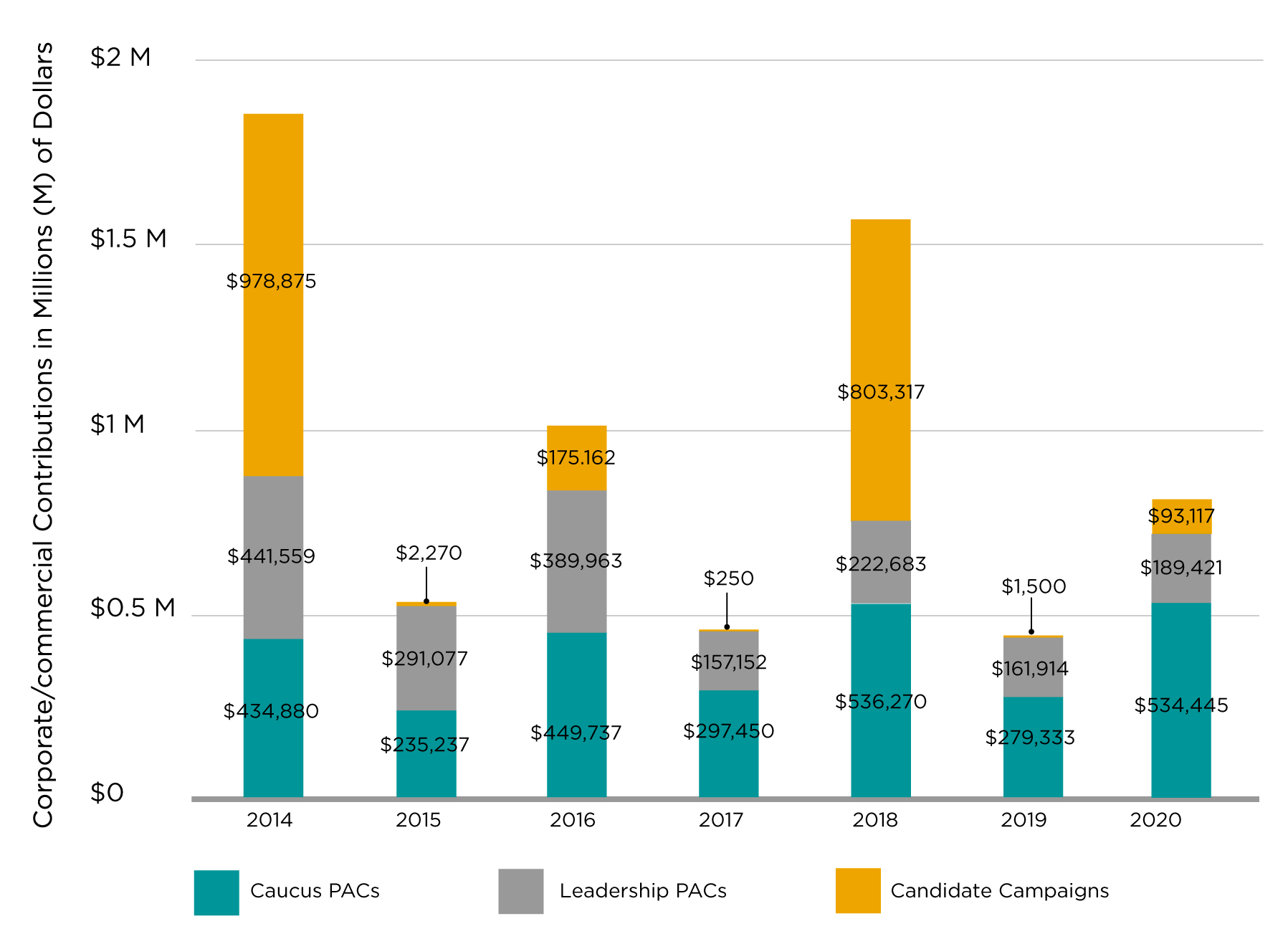
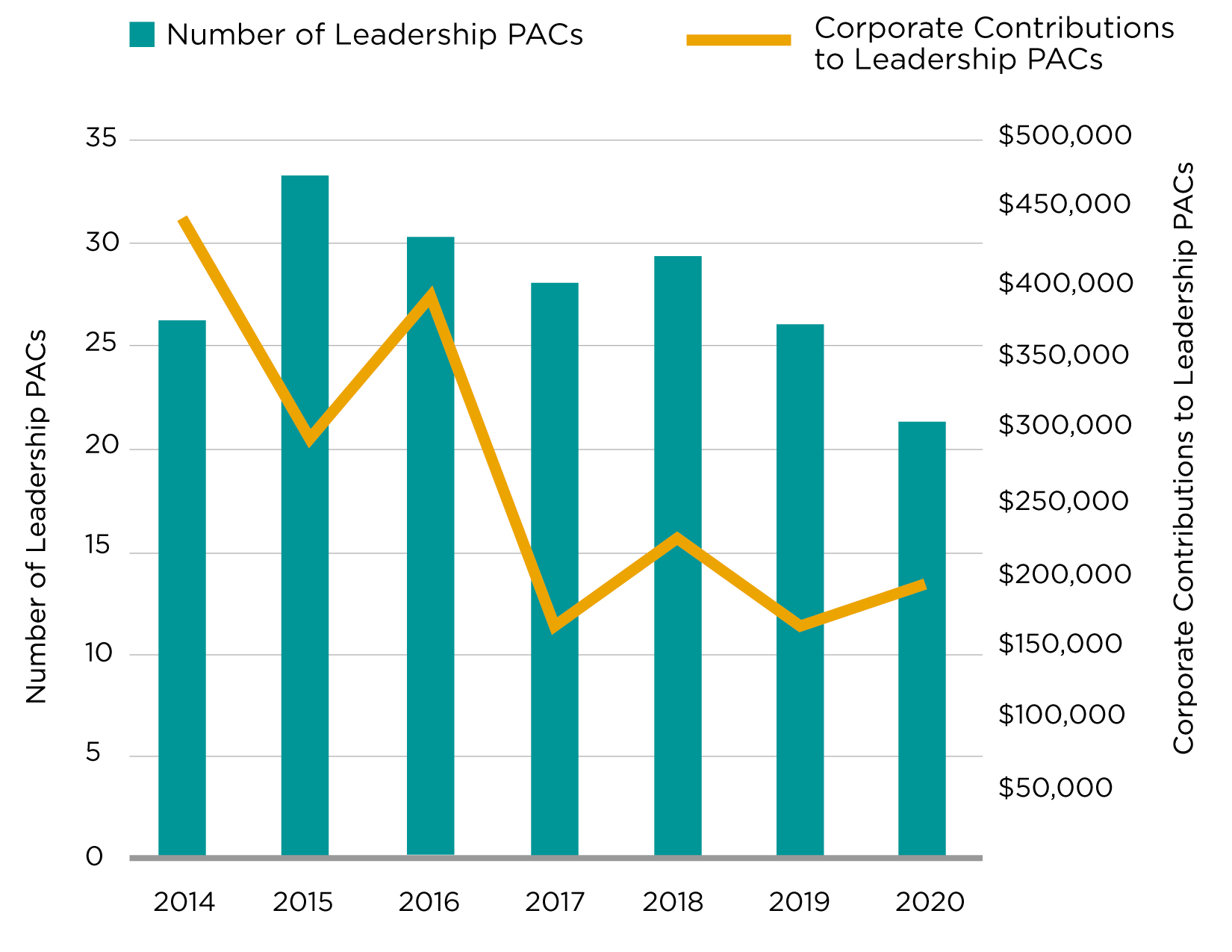
Why it matters
More than a third of money raised by legislator-controlled PACs comes from corporate sources. The majority of spending in the 2020 election cycle, including referendums, came from corporate sources, including some from foreign-owned companies.
Money in politics goes beyond just spending in an election cycle. It can affect legislation and progress on a number of issues that come up in a legislative session. You can check out our webinars that discuss how money in politics shape tax policy (which affects your life) and environmental policy (which also affects your life.)
Federal law and 22 other states prohibit corporate contributions to candidates. Maine is lagging behind. It’s time for us to show leadership again.
Learn more
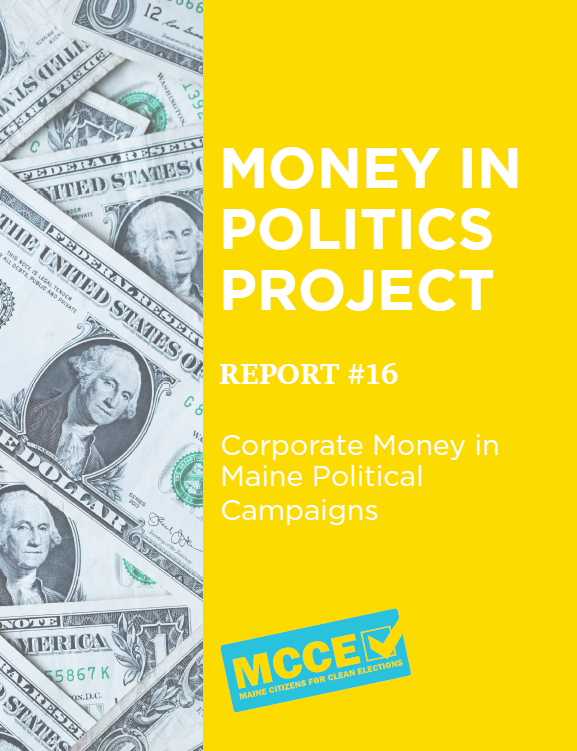 Money in Politics Report #16: Corporate Contributions
Money in Politics Report #16: Corporate Contributions
Since the landmark Citizens United decision in 2010, politicians and activists alike have denounced the rise of big money — and corporate money — in American politics. Corporate influence in the electoral process can overpower the voices of voters and warp the legislative process.

